"I See You, Dr. Stringfield!"
On taking up space, rediscovering my body, and why I love when my students comment on my outfits
My (Black) seminar students compliment, or otherwise remark on, my outfits every week.
I’m not mad about it.
I am careful about sharing this phenomena. The humor and delight I feel isn’t always effectively conveyed. Maybe it’s because I still mask and folks can’t see the quirk of my lips when I talk about my students; so instead they ask if I want them to stop. They broach the topic with an air of pity, “I feel for you,” that’s assumed to be shared.
I get it. No one wants to be perceived so fully, not really. That’s why they project the discomfort they would feel in the situation onto me.
My (Black) students walk into class every week, take a good look at me, and say things like, “Okay, blazer!” or “Come on, fit!” or “With the 90s chain! Period!” on their way to sit together at a huge table they make on the periphery of the class. At least one person always says some version of “I see you, Dr. Stringfield!” This is their love language.
Translated: “Even if no one else sees you, we see you. You are worthy of notice or remark. We value your presence. We want you to know we see you.”
I feel no discomfort by their comments, only a deep appreciation and value that I often seek to reciprocate. We use fashion and style as a way to bond. I express delight in one student’s Matrix inspired outfit and another’s huge beautiful Afro. I compliment one’s long nails and another’s new fade.
It’s our reminder to each other that we’re still here. We exist in that space of a Predominantly White Institution, even if others don’t want us to.
I have a group of Black students that often hang back after seminar. After just under three hours together, they still have more to say.
One week, our conversation spilled outside into the courtyard, and we congregated just before a staircase that leads down into a parking lot that you can cut through to get to another area of campus. By the time they’d attracted a friend to join us, we were a group a half a dozen strong.
Most folks weaved around and through us. One girl, a white undergraduate, purposefully slammed into one of my students. And when my student called after her to say excuse me, the girl turns back, red in the face, and screams at her, curses her for daring to take up space.
I didn’t remember I was a professor until a few moments too late. I could’ve asked for the girl’s name, I could have stopped her. I wondered later if she would have made the same choice if she had known I was a professor, and realized, probably.
And I was jolted back to my third year of college when Martese Johnson was assaulted by the ABC police on Grounds. In the video released of him that night, he yelled “I’m a student! I go to UVA!” As if it would protect him.
I had fallen into the same trap. I presumed “professor” was a title that would/could/should protect me, and those around me, from harm. All my unlearning had still led me to this conclusion and it haunted me for a week.
I was still a Black person who dared to take up space in a Predominantly White Institution.
But I would take up space.
If there is any discomfort I feel about my students remarking on my fashion choices, it has more to do with me trying to settle into my post-Ph.D. body. My body and mind are in such a moment of revolution: I am settling from the sustained and acute stress of graduate school, and as such, I have lost a great deal of the weight I picked up, while also recognizing this is the first time in my life, I have not been a student. I am a young Black professor, and for once, I actually have the money to really have fun dressing myself.
After years of feeling like a foreigner in my body, it feels delicious to settle into myself again. During the Ph.D., I gained at least seventy pounds that I’m aware of and all the natural hair I’d learned to take care of in the first half of my program, fell out in clumps by half way through the dissertation writing process, leaving areas that refused to grow back. I had chronic, debilitating, recurrent stomach issues, regular break outs, consistent migraines, and nails, like my hair, that refused to grow.
There are months where there are no photos of me on my phone, long stretches where I felt so disconnected from myself, I couldn’t bare to look.
This was unusual. I am, and have always been, a little vain. I loved to look at myself in the mirror, take selfies (thought I hated other folks taking my picture) and dress myself up in cute outfits that I carefully curated just because it made me feel good. I often took selfies to document cute outfits that became an archive of my style.
The whole things reminded me of one of Dr. Tressie McMillan Cottom’s TikTok’s:
I’m smart. I don’t need to be but so pretty. I can read.
I know what she means so deeply, so intimately here. But I think “I’m smart, I don’t need to be but so pretty,” has evolved into “I don’t need to be in my body” for me. There are moments when I have been so caught up in my head that I don’t know anything about what my body wants or needs from me, let alone what I can adorn it with to look and feel beautiful. Those two points are not too far removed on the same spectrum. I can get from one point to the other like a ten second car in a race.
And that is dangerous.
It’s why I spent several months trying to get back to myself. I wasn’t able to look at myself in mirror or enjoy taking pictures of myself until about October of last year, despite finishing up in April. That was when I started to recognize myself again. I found someone to cut my hair into a cute little buzz. I could comfortably find clothes at my favorite stores again. I started to play with my outfits again: pairing my favorite graphic tees with blazers and slacks, experimenting with the pieces I already owned.
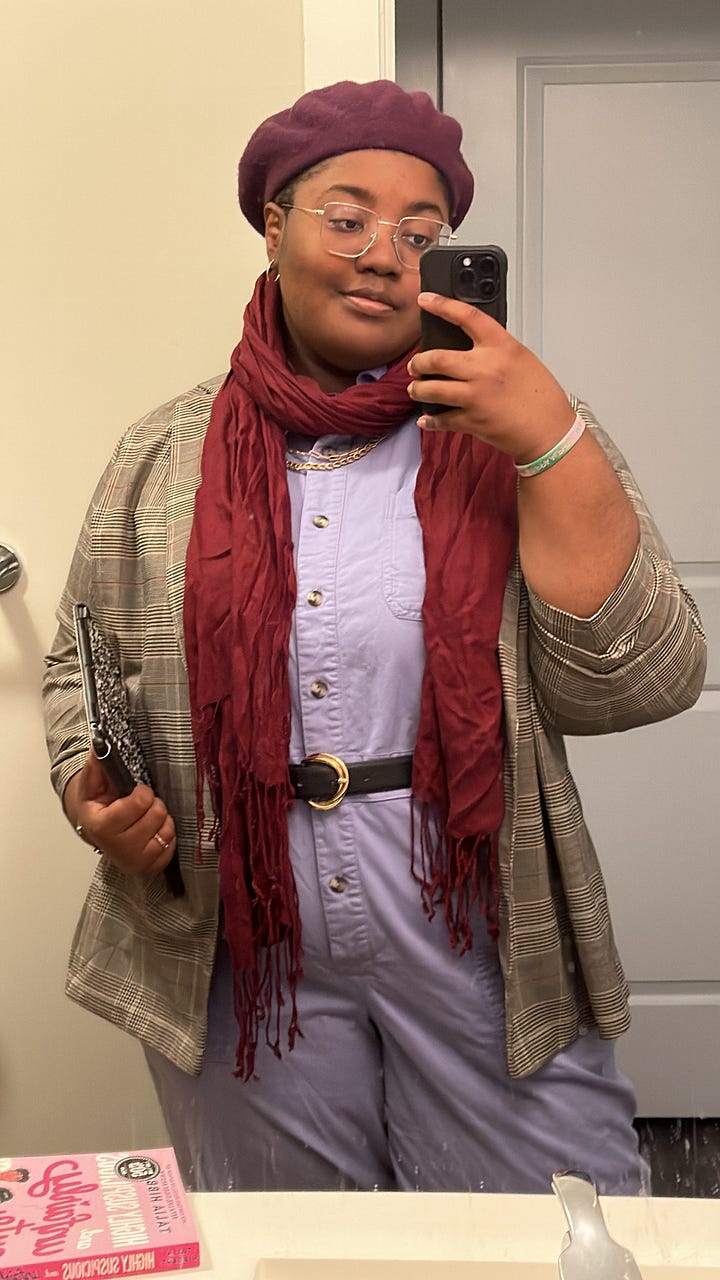
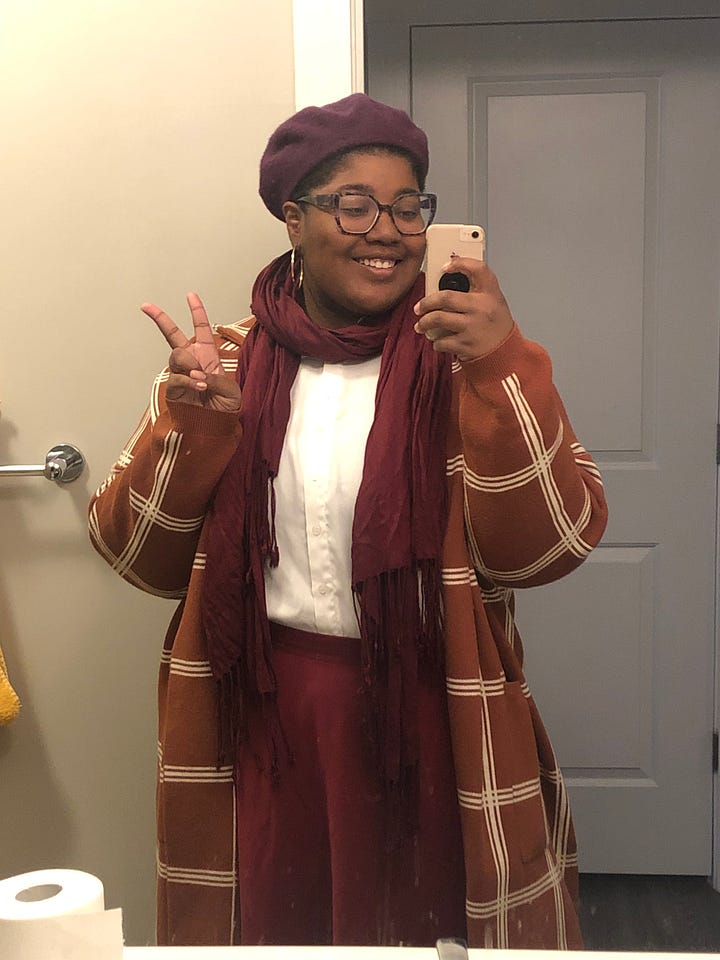
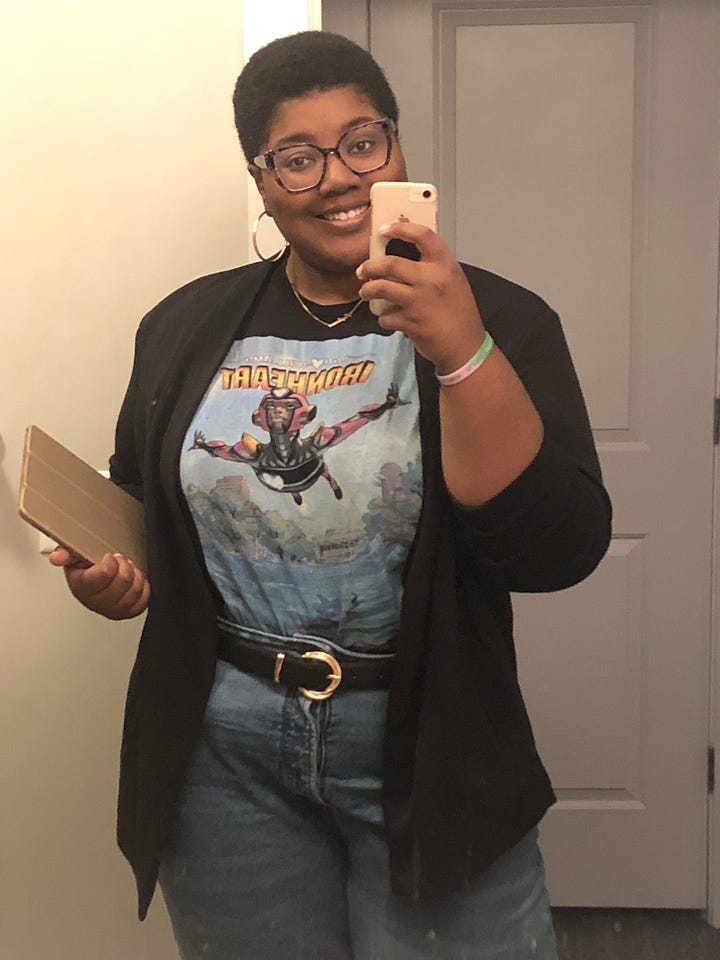
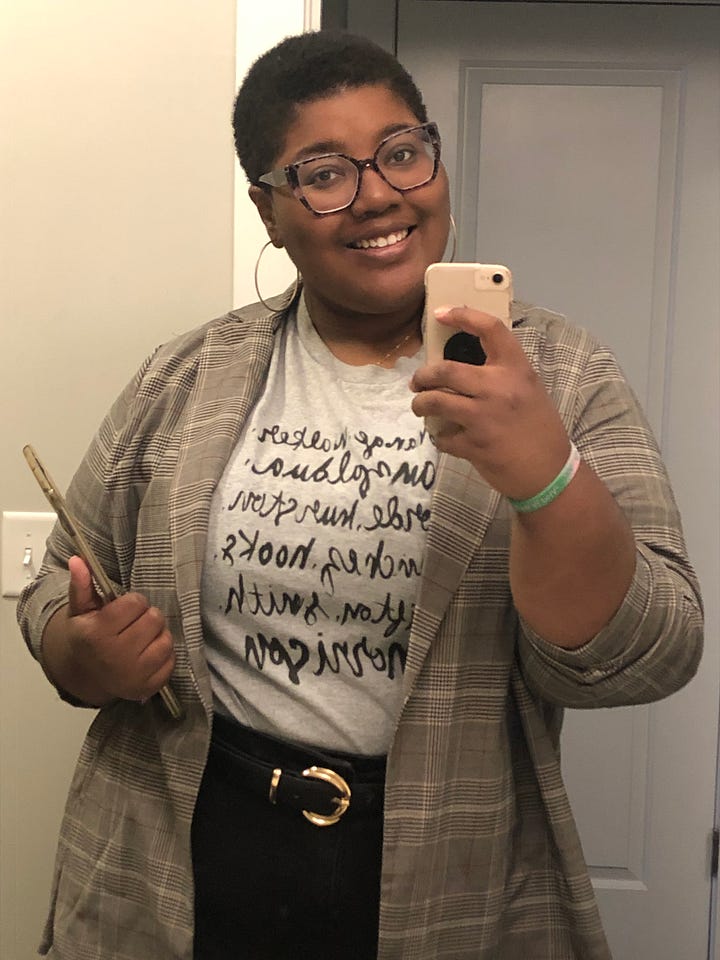
But by the new year, I had worn every combination I could dream up that tried elevate my lifelong student wardrobe.
At the start of this semester, with my money finally in a good place and settled from the move to my new city and with me finally in a good place mentally and physically, I decided it was time I stopped dressing like a student cosplaying as a professor and find a new style. Something that suited who I was becoming, who I wanted to be.
My students inspire me. They show up unapologetically themselves and have fashions that reflect that. I wanted to find a new style that screamed that for me.
I’ve always loved blazers, so I found some in bright colors and bold patterns. I reached for nice dresses and turtlenecks that could serve as a base for statement outwear and jewelry. I had to try on everything because I had to rediscover my sizes, even at stores I’ve been buying the same size at for years.
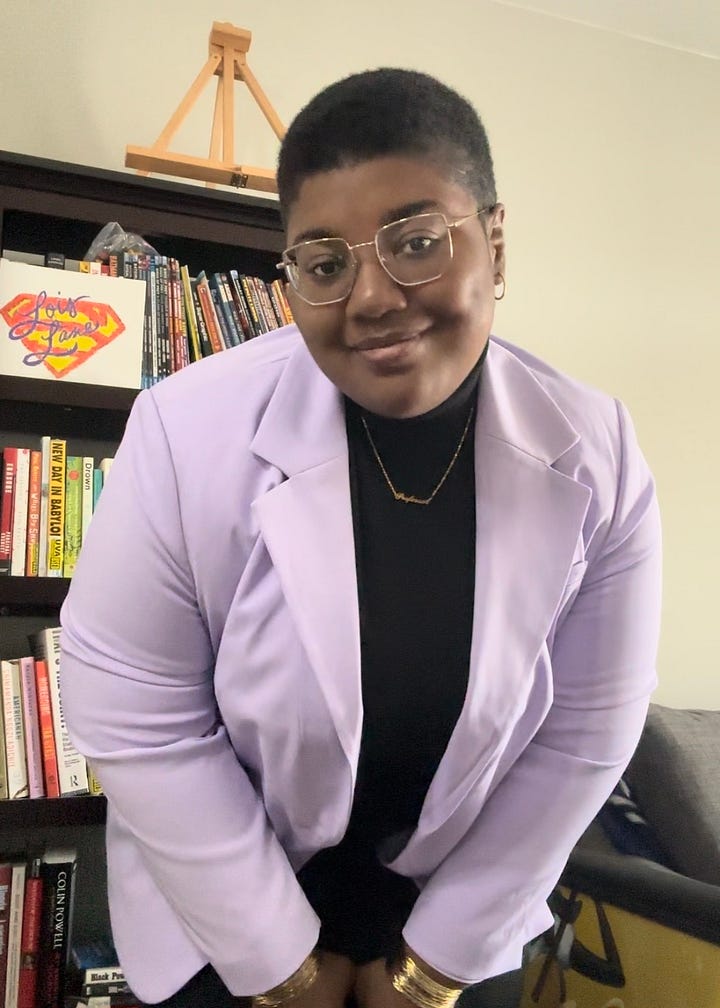
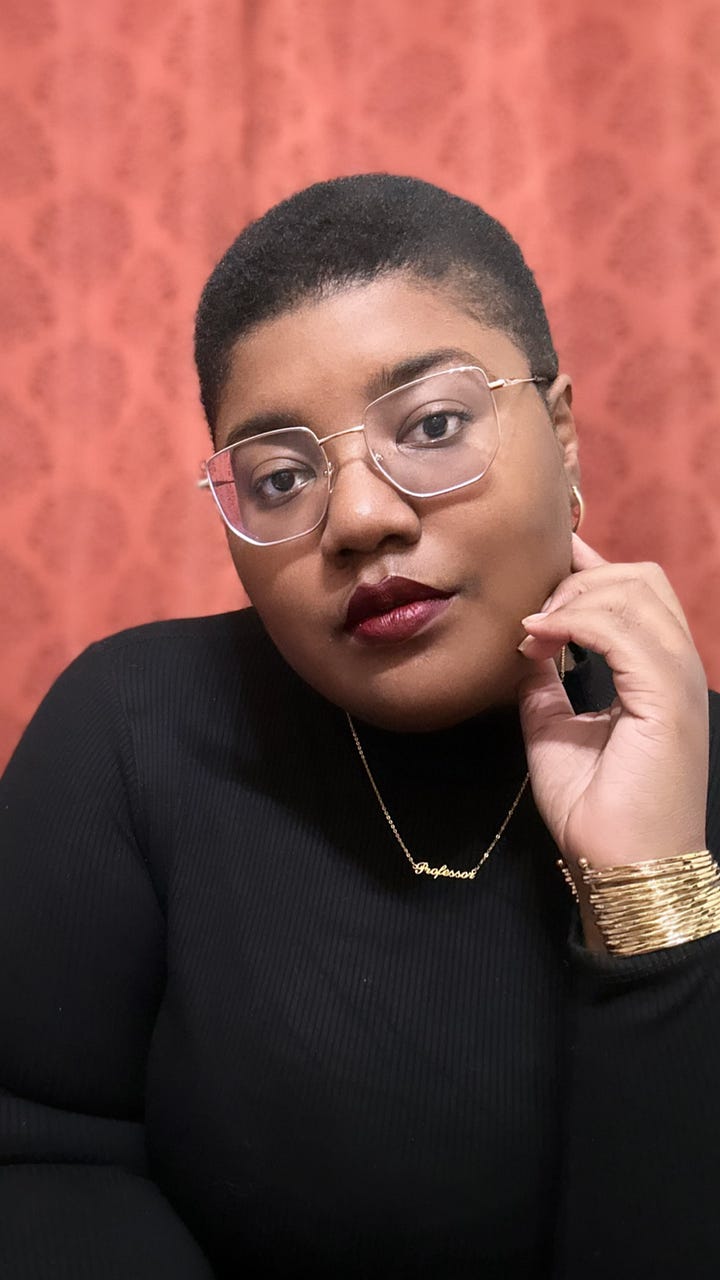
I searched for jewelry and was delighted to find a Greek mythology and astrology inspired Black-owned and creator jeweler right in Richmond. I brought a few pieces to build up that collection. I’ll eventually get a watch, which was one of my favorite statement pieces as a college student, find some good shoes, and maybe another work tote. (I love my current one, which was a graduation gift to me from a Twitter friend. Thanks, Sophia!)
But for now, I enjoy daydreaming about how I’ll put together another outfit from what I have that will make my students say, “Okay, Dr. Stringfield!”
Because after a few years of hiding, it feels so good to be seen.
*
Reading I Thought About While Writing:
Thick: And Other Essays, by Tressie McMillan Cottom
Hunger: A Memoir of (My) Body, by Roxane Gay
Dressed in Dreams: A Black Girl’s Love Letter to the Power of Fashion, Tanisha C. Ford


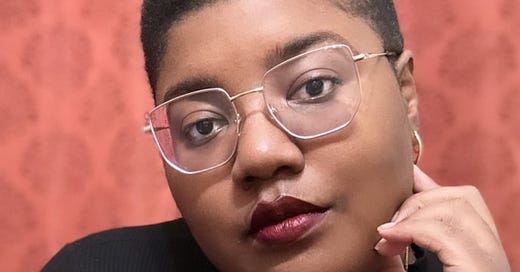


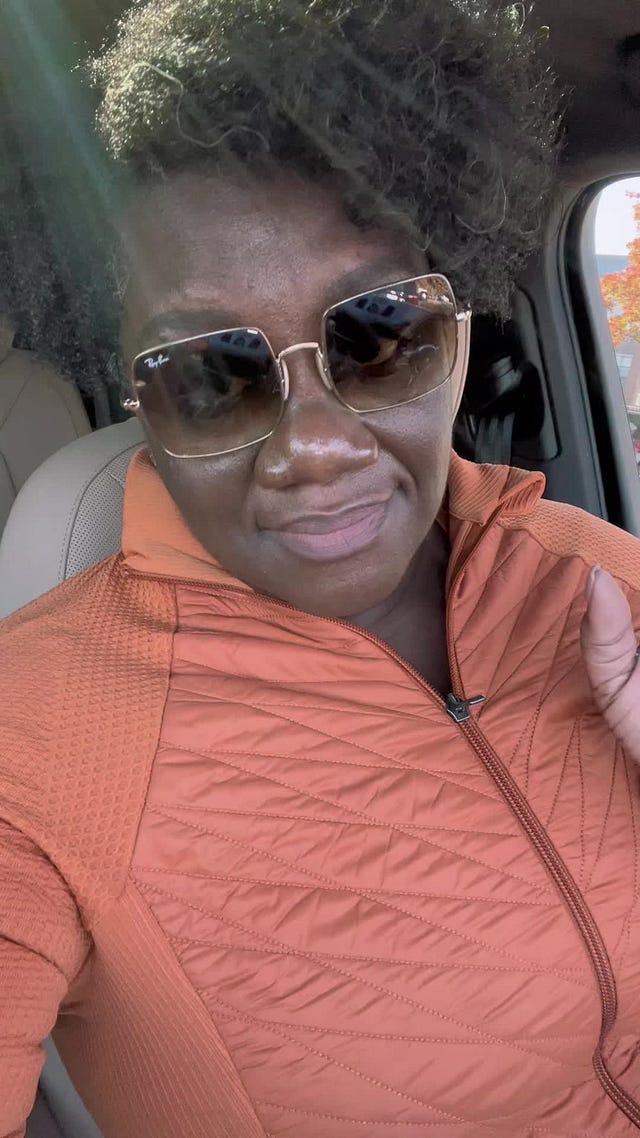

Bookmarked Sun & Selene.